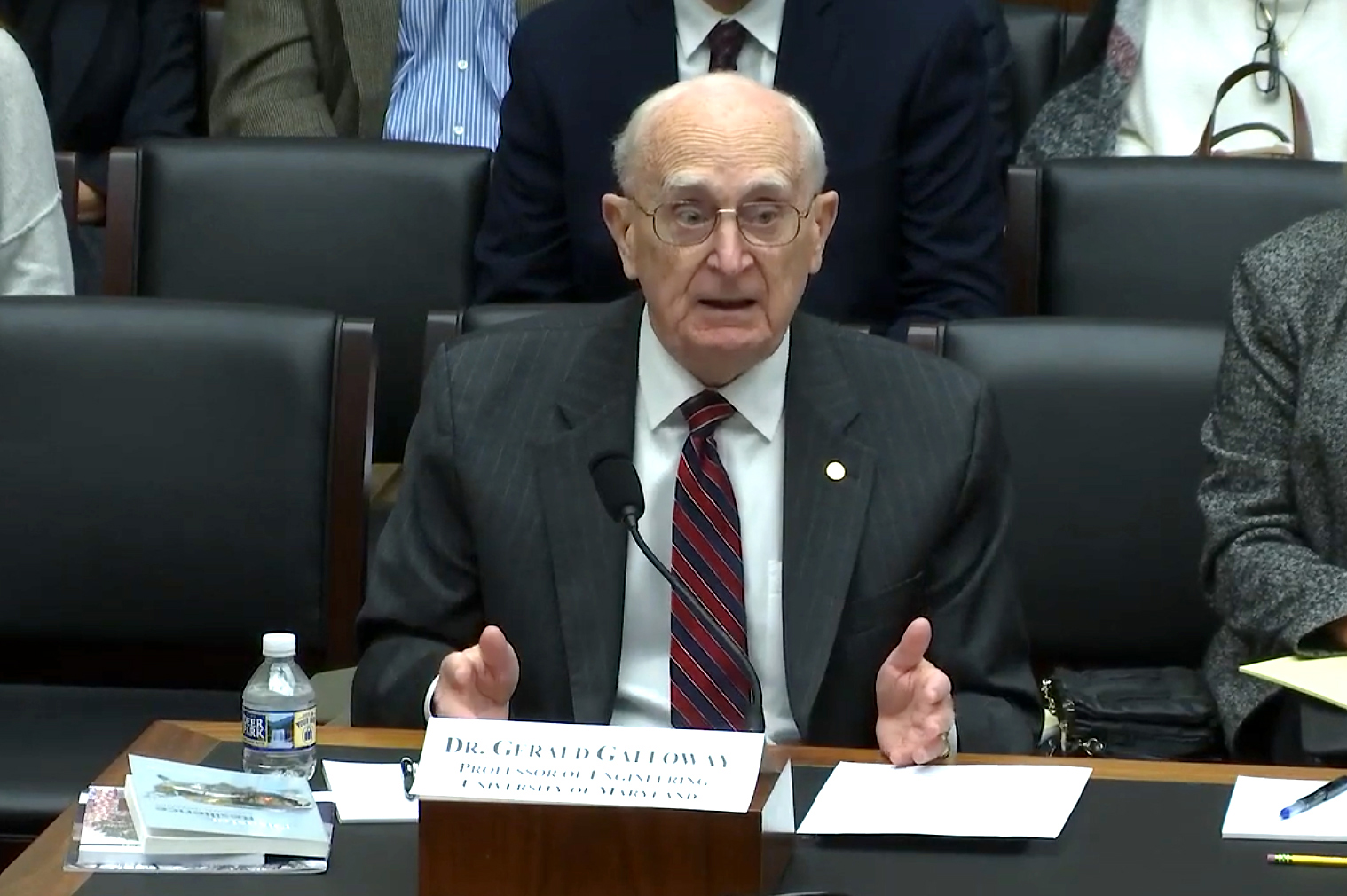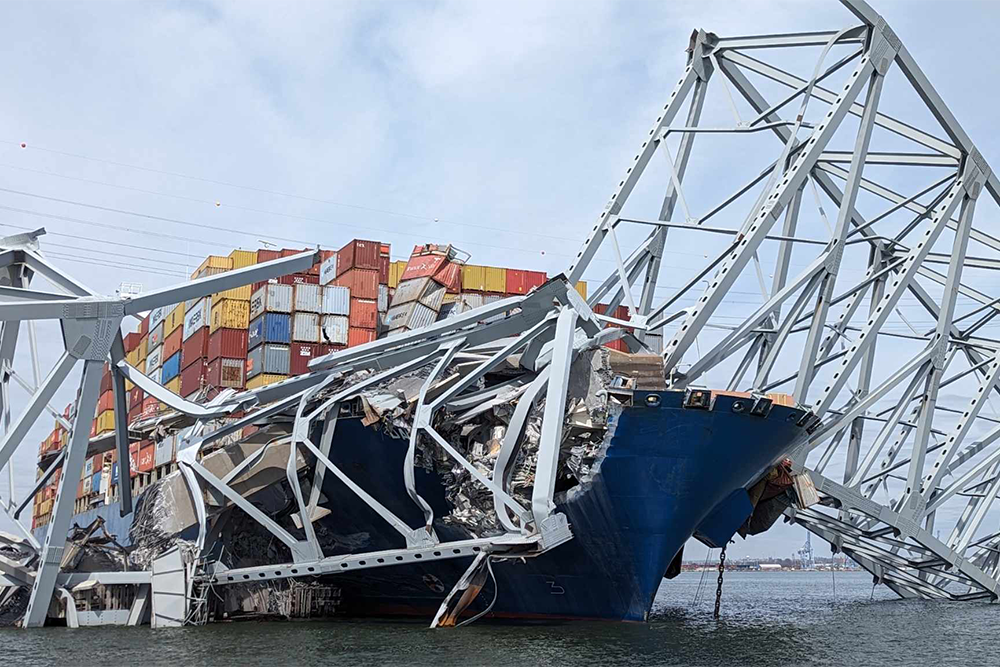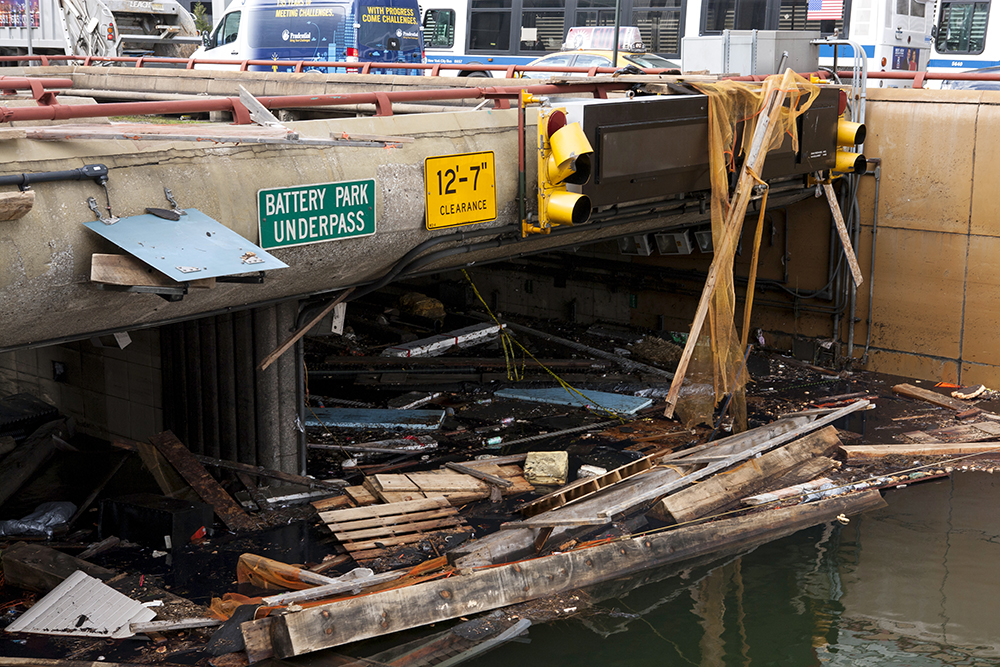News Story
Researchers Urge Overhaul of Disaster Policy
 As a new presidential administration prepares to take office in January, a public policy group is on a mission to gather the 100 best science and technology ideas for action on Day One.
As a new presidential administration prepares to take office in January, a public policy group is on a mission to gather the 100 best science and technology ideas for action on Day One.
Among them is a proposal put forward by University of Maryland (UMD) civil and environmental engineering faculty member Allison Reilly, in collaboration with University of Delaware assistant professor A. R. Siders and Deb Niemeier, who is the Clark Distinguished Chair at UMD’s A. James Clark School of Engineering.
Their idea? Bring an end to billion-dollar disasters by overhauling federal policies, with an eye to incentivizing resilience and redressing systemic inequities.
Natural disasters are extracting a rising toll in the United States, due to a combination of climate change, urbanization, development in high risk areas, antiquated infrastructure, and other factors, Reilly and her co-authors point out. Meanwhile, federal disaster policy works against building more resilient communities, since dollars are allocated according to losses—the more damage a community sustains, the more federal money it receives.
Nearly 45,000 new homes experienced repeat flood losses over the last decade, according to Government Accountability Office data, while less than half that number had their flood risk reduced through elevation, acquisition, or floodproofing. Taxpayers, meanwhile, continue to foot the billion-dollar cost of disincentivizing resilience.
“In terms of disaster response, there are no penalties for developing in high-risk areas,” Reilly said. “If anything, the more damage you have, the more money you’re going to get.”
“In terms of disaster response, there are no penalties for developing in high-risk areas. If anything, the more damage you have, the more money you’re going to get.”
Allison Reilly, assistant professor of civil and environmental engineering
In addition, because damage is measured in terms of assets rather than people, poorer communities routinely get short shrift. Disaster recovery allocations join multiple other factors, including inadequate transportation infrastructure, in creating a vicious cycle that compounds inequity.
The decision-making process for disaster recovery also suffers from a lack of transparency, leading to wasted resources and unnecessary costs, Reilly said. In some cases, she said, FEMA and other agencies end up paying to recover the same flooded properties again and again—with no action taken to prevent the damage from being repeated.
It’s also important for agencies to work together and communicate effectively. “If one agency is buying out at-risk homes while another is building a seawall, then they are in effect negating each other’s efforts,” Reilly said, citing Staten Island as an example.
As part of their Day One proposal, Reilly’s team is calling on the Biden-Harris administration to issue an executive order instructing federal agencies to define federal roles in disaster response, coordinate agency efforts, and integrate social justice and climate change into decision-making. Executive action would be paired with agency-level mandates establishing best practices, incentivizing resilience and sustainable development, and bringing funding allocations into line with evidence of effectiveness.
“A coordinated overhaul of federal laws and policies will inspire change at state and local levels, leading to a U.S. disaster policy that is climate-ready, addresses social inequities, reduces taxpayer liability and disaster damage, and saves lives,” the team said in their report.
The Day One Project is led by veteran policymakers, many with previous White House experience, and with specific expertise in science and technology policy. Its director, Daniel Correa, served as assistant director for innovation policy at the White House Office of Science and Technology Policy, and led development of the Obama administration’s 2015 innovation strategy.
Published December 18, 2020








